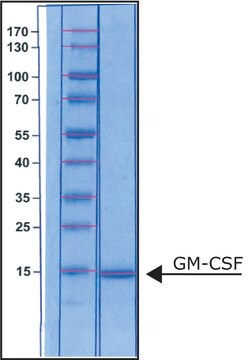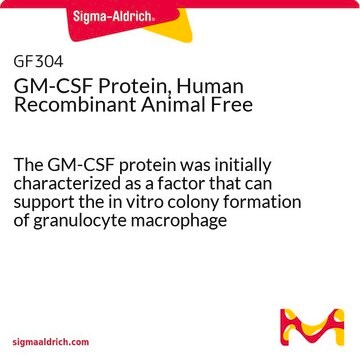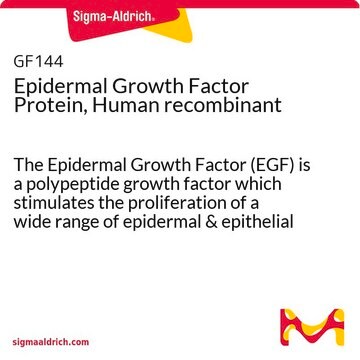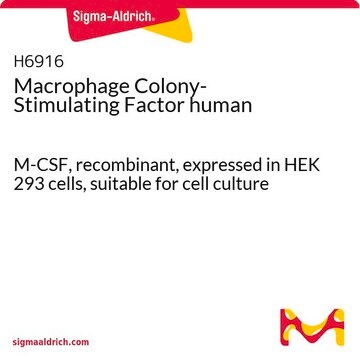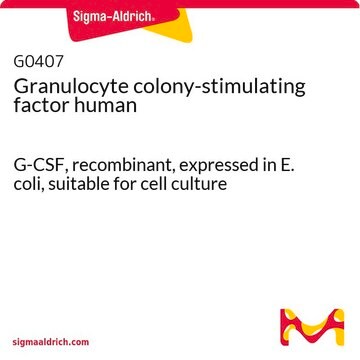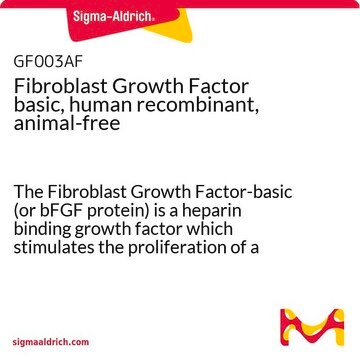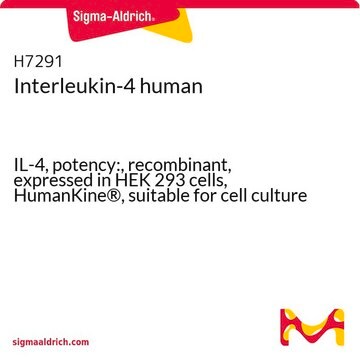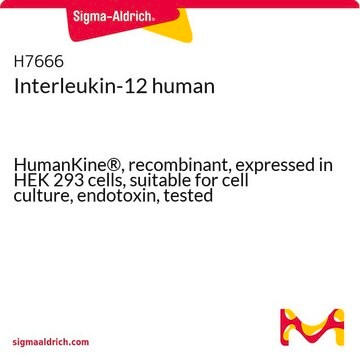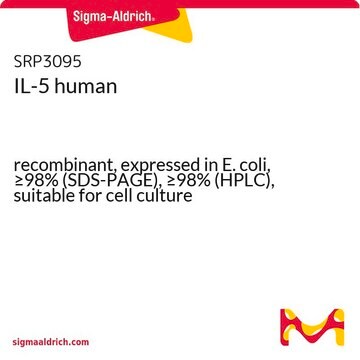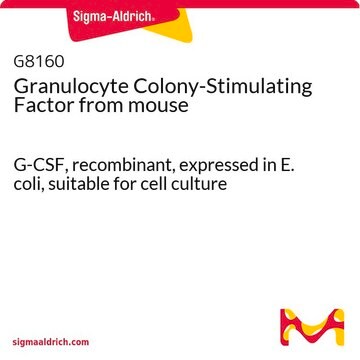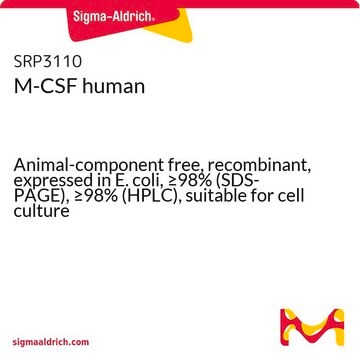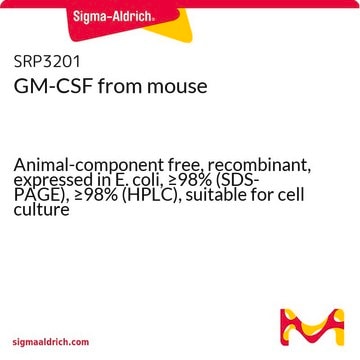H5666
Granulocyte-Macrophage Colony-Stimulating Factor human
HumanKine®, ≥95% (SDS-PAGE), recombinant, expressed in HEK 293 cells, lyophilized powder, suitable for cell culture
Synonym(s):
GM-CSF human
About This Item
Recommended Products
Product Name
Granulocyte-Macrophage Colony-Stimulating Factor human, GM-CSF, recombinant, expressed in HEK 293 cells, HumanKine®, suitable for cell culture
biological source
human
Quality Level
recombinant
expressed in HEK 293 cells
Assay
≥95% (SDS-PAGE)
form
lyophilized powder
potency
≤5 ng/mL EC50
quality
endotoxin tested
mol wt
dimer 15-36 kDa (glycosylated)
packaging
pkg of 5X10 μg
pkg of 10 μg
storage condition
avoid repeated freeze/thaw cycles
technique(s)
cell culture | mammalian: suitable
impurities
≤1 EU/mg
UniProt accession no.
storage temp.
−20°C
Gene Information
human ... CSF2(1437)
Looking for similar products? Visit Product Comparison Guide
General description
Application
Biochem/physiol Actions
Caution
Physical form
Preparation Note
Analysis Note
Legal Information
Storage Class Code
11 - Combustible Solids
WGK
WGK 3
Flash Point(F)
Not applicable
Flash Point(C)
Not applicable
Choose from one of the most recent versions:
Already Own This Product?
Find documentation for the products that you have recently purchased in the Document Library.
Customers Also Viewed
Articles
Read article on hematopoietic cytokines and hematopoiesis
Our team of scientists has experience in all areas of research including Life Science, Material Science, Chemical Synthesis, Chromatography, Analytical and many others.
Contact Technical Service